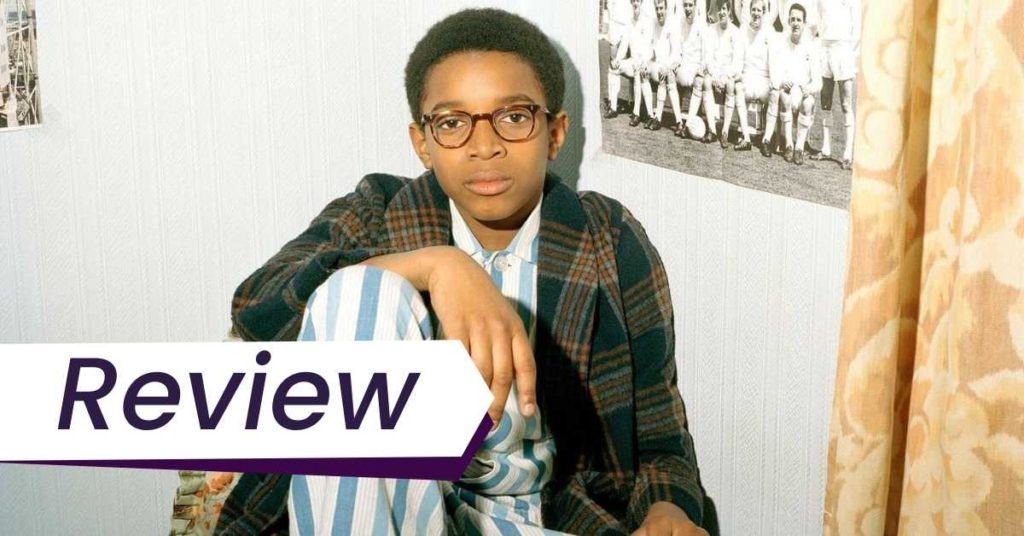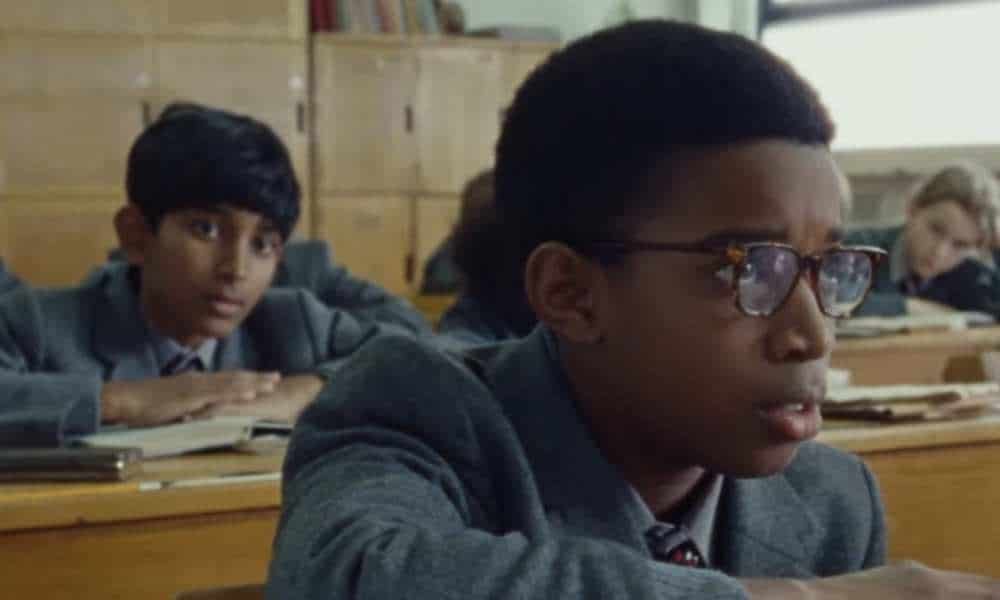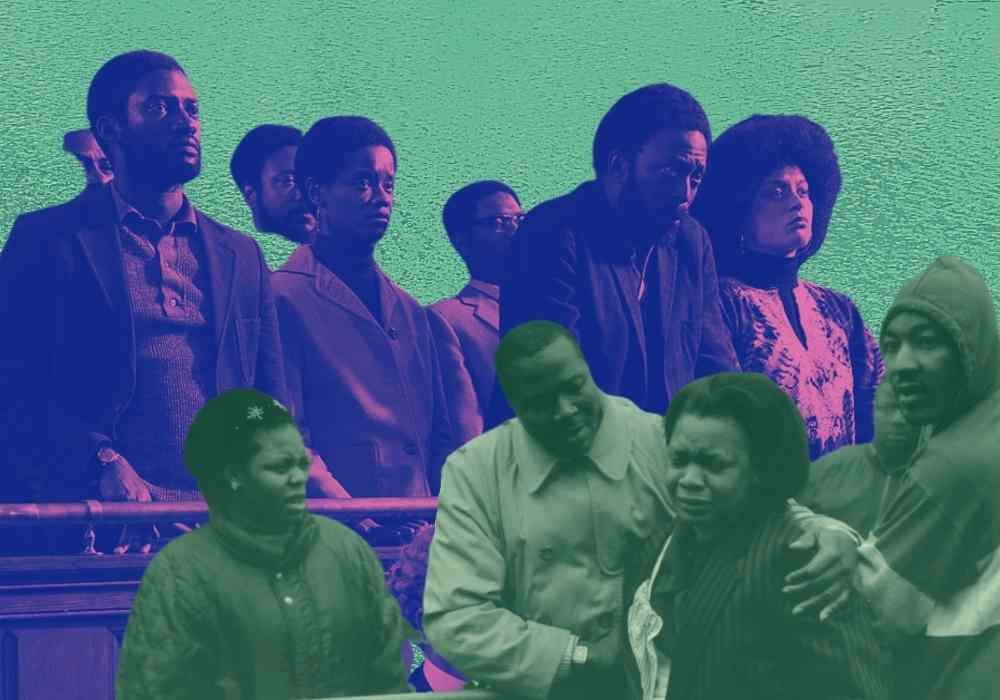Education, the final film in Steve McQueen’s Small Axe anthology, explores systemic racism in the British schooling system and the West Indian women who organised to combat it.
Read the rest of our coverage of Small Axe here.

Discover one film you didn’t know you needed:
Not in the zeitgeist. Not pushed by streamers.
But still easy to find — and worth sitting with.
And a guide to help you do just that.
Steve McQueen’s five-film series, Small Axe, closes out with Education, the most personal installment to McQueen, and the one with the youngest protagonist. Although 12-year-old Kingsley (Kenyah Sandy) isn’t a direct analogue with McQueen’s childhood self, McQueen has said the film was based partially on his own hellish experience in the British secondary education system. Education is a fitting end to Small Axe: it continues many of the series’ themes, from Black people creating safe spaces away from a hostile white society, to the sacrifices the older generation makes for the younger. It also leaves the series on a hopeful note: despite the trials Kingsley goes through at school, there’s the promise of greatness in his future, especially if we see him as a McQueen surrogate.
Yet Education is less about Kingsley than the women around him who allow him to grow, develop, and flourish despite the systemic racism he faces at school. Kingsley can’t read, and it’s implied that he’s dyslexic, but he’s also bright, curious, and dreams of growing up to be an astronaut. After he struggles to read in class, his school transfers him to a “special school” where they promise to provide him a more specialised education, but in reality, the teachers are incompetent, and sometimes don’t even show up to class. It’s a monumental task to help Kingsley succeed despite the fact that the system is failing him. The concern of his mother, Agnes (Sharlene Whyte), and 18-year-old sister, Stephanie (Tamara Lawrance), can only get him so far. It takes the advocacy and action of a whole organisation of West Indian women, led by Lydia (Josette Simon) and Hazel (Naomi Ackie), to identify the systemic racism in the school system and provide an alternative.
McQueen demonstrates how education inequality is compounded by income inequality, as Kingsley’s parents, Agnes and Esmond (Daniel Francis), are too exhausted from their jobs to deal with Kingsley’s problems at school. Lydia contacts Agnes and explains that Kingsley’s school is actually a school for the Educationally Subnormal”, where many West Indian children are sent so that they don’t drag down the grades of the “normal” schools. Agnes seems disturbed by this news, but she’s also combative and reluctant to believe it at first; in between shifts at her nursing job, she doesn’t have the energy to deal with another problem on her plate. Even after Lydia’s visit, it takes a while for Agnes to face the issue of Kingsley’s education head on and start to go to the organisation’s meetings.

Lydia and Hazel’s organisation creates an entire parallel, underground system to combat the government’s unjust schooling system. Even if Agnes had noticed Kingsley’s dejection, and his lack of academic skills, such as basic reading ability, there’s not much she could have done about it alone. Stephanie does notice, but with her own education to worry about, she doesn’t have the time or ability to help beyond pointing it out to her parents. The injustice of the system is beyond the control of individuals, but as a collective, Lydia and Hazel’s organisation creates an entirely new system in which to raise Black children. They infiltrate “Educationally Subnormal” schools in order to track down the parents of children that go there. Then, they create entirely new, unofficial schools to send the children to on the weekends, filling in the gaps of their education.
This informal education is more exciting, invigorating, and nurturing than anything Kingsley experienced at his “normal” school (where teachers berated him for not being able to read) or his “special” school (where teachers didn’t teach at all). His friendly and welcoming teacher, Mrs. Bartholomew (Jo Martin), runs the school out of her living room and kitchen, and she encourages the students to engage in conversation rather than being talked at by an unempathetic authority figure. Their education is personalised for them, such as the Black history discussion group that teaches them stories about Black people that aren’t on the national curriculum. Even Stephanie, who is excelling at a “normal” school, willingly attends the Saturday school, suddenly excited by the prospect of extra learning under a curriculum that takes Black people into account.
While previous Small Axe installments lamented the trauma faced by Black Londoners in the ‘60s, ‘70s, and ‘80s, Education is one of the only films that offers an actionable solution to circumventing the unjust system it depicts, even if it takes hard work and sacrifice to get there. It’s bittersweet to hear parents at Lydia’s meeting talk about it being too late for them to claim the benefits of a good education, but not too late for their kids. The film begins with Kingsley gazing at the stars in a planetarium, dreaming of one day being an astronaut; at the end, he reads excitedly from a book around the breakfast table, his mother quietly cries, and McQueen cuts back to those same stars. Thanks to the women who form his support network, we end the film feeling like his dreams might still be possible.
Education will air on the BBC in the UK on December 13th, after which it will be available on BBC iPlayer. Elsewhere in the world, the film will arrive on Amazon Prime on December 18th.
You could be missing out on opportunities to watch great films like Education on VOD, virtual cinemas, and festivals.
Subscribe to the Seventh Row newsletter to stay in the know.
Subscribers to our newsletter get an email every Friday which details great new streaming options in Canada, the US, and the UK.
Click here to subscribe to the Seventh Row newsletter.



